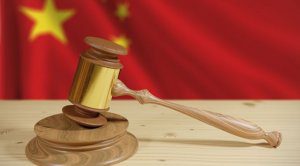 China’s arbitrary detention of Michael Kovrig and Michael Spavor has dispelled any notion that the Chinese party-state apparatus is a normal and decent entity, writes J. Michael Cole in the Globe and Mail.
China’s arbitrary detention of Michael Kovrig and Michael Spavor has dispelled any notion that the Chinese party-state apparatus is a normal and decent entity, writes J. Michael Cole in the Globe and Mail.
By J. Michael Cole, September 5, 2021
This weekend marks the 1,000th day since China’s arbitrary detention of Michael Kovrig and Michael Spavor. The fate of the two Canadians has dispelled any notion that the Chinese party-state apparatus is a normal and decent entity, one whose excesses and ideology have no direct relationship with our safety and way of life.
For far too long, it was possible – easy, in fact – to look the other way whenever we heard about the Chinese Communist Party’s widespread repression. The actions of the CCP pertained to another era, or were far too distant to seem relevant to us. It was possible, therefore, to disregard the horror stories or to rationalize them, as investors, consumers and politicians all did, as the necessary transgressions of a once-impoverished country on its road to modernity.
Thanks to our collective refusal to see the facts, Beijing got away with imprisoning thousands upon thousands of people within its borders and inside the territories of its empire – ethnic Uyghurs, Tibetans, activists, lawyers, journalists, writers, publishers and religious figures. Even Hong Kong, the once more recognizable part of China for the West, is now a battlefield in which the state apparatus tramples the rights of its citizens.
Along with the crushing of Hong Kong under the weight of the national security law, China has given its draconian security measures a new extraterritorial reach, resulting in the detention – often arbitrary, as in the cases of Mr. Kovrig and Mr. Spavor – of non-Chinese or dual nationals.
In some cases, such victims were seized at China’s behest by the security apparatus in another country and rendered to China to face the vagaries of a legal system that is all but independent. This, for example, was the sad fate of Huseyin Celil, a Canadian with Chinese nationality who in 2006 was arrested in Uzbekistan and sent to China to face highly questionable terrorism charges. It has been more than 15 years since Mr. Celil was swallowed up by the Chinese legal system, from which he likely will never re-emerge.
We largely abandoned him because, if we are honest with ourselves, as an immigrant he was still the “other” in our society. We failed to heed the warnings, and continued to do so, misguided as we all were by our illusions about China and the self-interest of politicians and corporate leaders. Meanwhile, the China that kidnapped Mr. Celil became not only more repressive, but its enrichment gave it the possibility of expanding the field of its repression in the name of “national security.”
So when Mr. Kovrig and Mr. Spavor were abducted in retaliation for the arrest of Huawei executive Meng Wanzhou, we should not have been surprised, especially as a number of other foreign nationals – Swedish, Australian, Taiwanese among them – had already fallen victim to state-sponsored kidnapping by China.
The detention of Canadians on trumped-up charges of espionage may have proven satisfactory for Chinese officials who regarded the arrest of Ms. Meng as an affront to Han exceptionalism, or who needed to remind Canada of its proper place in the hierarchy of states. However, this excess is bound to be counterproductive, as it has helped awaken Canadians – and many others around the world – to the reality of China under Xi Jinping and a form of despotism being exercised on a worldwide scale.
The mingling of this repressiveness with the appeal of China’s economy poses an unprecedented challenge to the international community. But we cannot continue to give China the opportunity to use its economy as justification for widespread repression, nor should we sacrifice its countless victims by buying into the (false) moral equivalence that Beijing and its apologists have erected as a barrier against criticism.
As we mark the 1,000th day of their illegal detention by China, Mr. Kovrig and Mr. Spavor remind us that we are all potential victims, that the terrible fate which for far too long we believed was only reserved for the Chinese people or ethnic minorities within China’s borders could one day be ours. We need no longer be inside China to experience its effects.
Mr. Kovrig and Mr. Spavor must be freed, but not as part of some transaction that allows the Chinese regime to get away with it. For this will only be an invitation for Beijing to engage in similar behaviour in the future.
J. Michael Cole is a Taipei-based senior fellow with the Macdonald-Laurier Institute.




